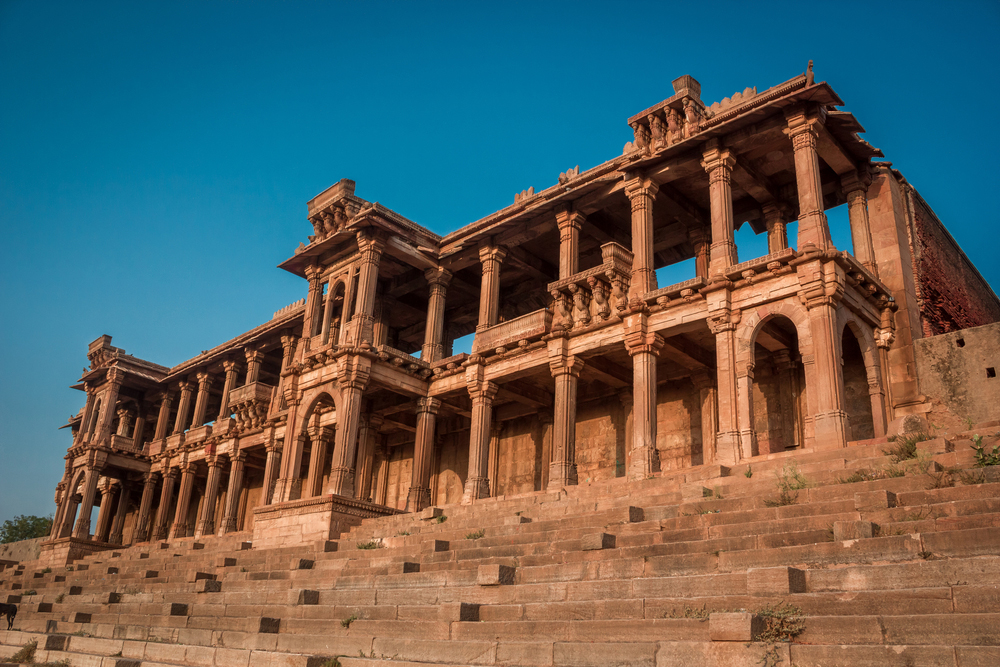BJP-ruled Gujarat’s proposal to rename Ahmedabad as Karnavati runs counter to all the arguments the ruling party’s own administration had placed before Unesco to secure World Heritage City status for Gujarat’s old capital.
Renaming cities, especially those bearing Islamic names, has always been part of the Sangh-BJP agenda, which has led to name changes in recent months for Allahabad, Mughalsarai and Faizabad in Uttar Pradesh.
Ironically, the Ahmedabad Municipal Corporation’s argument for World Heritage City status for Ahmedabad, endorsed by then chief minister Anandiben Patel and the Narendra Modi government, had stressed aspects like its “multi-cultural character” and “unique Sultanate idiom”.
When Unesco granted the status on July 9 last year, Prime Minister Narendra Modi, BJP president Amit Shah and chief minister Vijay Rupani had all celebrated the honour.
“A matter of immense joy for India!’’ Modi had tweeted. “Delighted to know that @UNESCO has declared Ahmedabad as World Heritage City. Proud moment for every Indian,’’ was Shah’s reaction.
Rupani had said: “Thrilled to learn that Ahmedabad has been recognised as a Unesco #WorldHeritage city, first of its kind in India.”
On Thursday, however, the chief minister said: “We are contemplating changing the name of Ahmedabad to Karnavati, talks for which have been going on since a long time (ago). Concrete steps will be taken after looking at it from legal and all other angles. We will think about it in the time to come.”
The Unesco inscription is a virtual tribute to Ahmedabad’s syncretic culture: “The walled city of Ahmadabad, founded by Sultan Ahmad Shah in the 15th century… presents a rich architectural heritage from the sultanate period… and numerous mosques and tombs as well as important Hindu and Jain temples of later periods….”
This was based on the case made by the Ahmedabad civic body. “The architecture of the Sultanate period monuments exhibit(s) a unique fusion of the multi-cultural character of the historic city, and its significance is highlighted in preparing the nomination to the World Heritage List,” is how the January 2016 executive summary submitted by India began.
“This heritage… is of great national importance and is associated with the complementary traditions embodied in other religious buildings….”
The document added: “Its monumental buildings representative of the religious philosophy exemplified the best of the crafts and technology which actually saw growth of an important regional Sultanate architectural expression which is unparalleled in India.”
It flagged “the unique Sultanate idiom” developed by allowing local craftsmen and masons “full freedom to employ their indigenous craftsmanship” and local traditions “in religious buildings of Islam” even if they did not strictly follow the tenets for such buildings.
Asked whether Ahmedabad risked losing its World Heritage City status if the name was changed, Unesco’s chief of media services, George C. Papagiannis, told The Telegraph: “No, the only risk is that the proposed name change is not approved.”
About the process for any change, Papagiannis said: “The request for a modification to the name shall be received by the World Heritage Centre at least three months prior to the meeting of the committee. This request is reviewed by the relevant advisory body (ICOMOS for cultural properties and IUCN for natural properties) which formulate(s) a recommendation on the basis of which the committee takes a decision.”
Asked whether the political/ideological project driving the renaming would make any difference to the way Unesco views the application for the name change, the response was: an ICOMOS or IUCN review of any name-change proposal looks precisely at the fact that the change must be in line with the basis for the justification of the site’s Outstanding Universal Value.
Academic Ghanshyam Shah said that renaming Ahmedabad to Karnavati has been a longstanding Sangh-BJP project but it would no longer carry much resonance with the people.
“Now that the communal divide in the state has been settled in favour of the majority, people will not be enthused by such a name change,” Shah said. “Also, something that may have clicked in the past will not necessarily work in the party’s favour always. Gujarat society has moved on.’’










